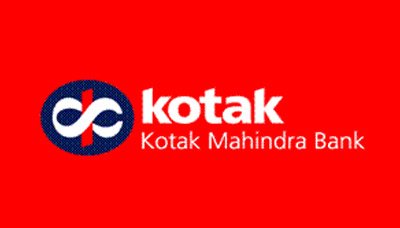
- Total private equity inflows in residential at USD 266 mn in 2018 – an 82% decline since 2015
- Commercial real estate drew the lion’s share with USD 2.8 bn PE funds
- Average deal size increased by over 170% in 4 years – from USD 47 mn in 2015 to USD 128 mn in 2018
- Overall real estate sector attracted over USD 4 bn of PE funds in 2018; a decline of 9% against 2017
- In less than 3 months into 2019, PE equity investment into real estate are close to USD 1 bn
Mumbai, 25 March 2019: Institutional investors invested more than USD 4 bn funds across the country’s real estate segments in 2018, states ANAROCK Property Consultants‘ latest report ‘Private Equity in Indian Real Estate‘. The commercial office segment saw the highest inflows, accounting for a massive 70% share of the total institutional investments into the industry in 2018. Retail real estate came in a distant second with 7%, and the residentialsector drew the least private equity among the three sectors, with less than 7% of the overall share.
The report says that out of the total PE inflow of USD 14 bn into the sector in the last four years, 2017 and 2018 collectively saw the maximum investments to the tune of USD 8.6 bn.
Shobhit Agarwal, MD & CEO – ANAROCK Capital says, “Currently, funding is a major hurdle for the Indian real estate’s growth prospects – especially post the NBFC crisis. Private equity funding is the best alternative for developers who qualify for it. Despite a decline of 9% in PE inflows in 2018 against the preceding year, 2019 will bring a marked increase in private equity funding because of India’s first REIT listing.”
“From this point onward, commercial real estate – especially Grade A office spaces – will attract considerable investments,” he says. “Nevertheless, much of the industry’s prospects also hinge on the outcome of the upcoming general elections. Institutional investors will continue to pump in funds into the real estate industry if they can rely on political stability, proactive policies and a favourable microeconomic environment.”
The report further states that despite deal numbers declining since 2015, the average deal size has increased by nearly 172% in the last four years – from USD 47 mn in 2015 to USD 128 mn in 2018. Interestingly, the top 5 deals in 2018 alone contributed almost 50% of the total investments during the year. PE investors have become more cautious about selecting and associating with developers; however, once confident, they are making larger investments.
| Top 5 PE Deals of 2018 | |||||
| Company | Investors | Amount (US$M) | Date | City | Sector |
| Shapoorji Pallonji Group | Mapletree Investments Pte Ltd. | 352 | Nov-18 | Chennai | Commercial |
| Phoenix Group | Xander | 350 | Oct-18 | Hyderabad | Commercial |
| Indiabulls Real Estate | Blackstone | 730 | Mar-18 | Mumbai | Commercial |
| Equinox Business Park | Brookfield | 386 | Jan-18 | Mumbai | Commercial |
| Phoenix Group | Ascendas | 204 | Jul-18 | Hyderabad | Commercial |
Source: ANAROCK Research
“A segment-wise breakdown indicates that commercial realty saw an annual increase of 27% in PE investments – from nearly USD 2.2 bn in 2017 to over USD 2.8 billion in 2018,” says Agarwal. “High occupancy levels, relatively lower rentals in dollar terms, quality Grade A assets and high-quality tenants are the key reasons for commercial space to draw around 70% of the overall share of the total private equity investments in 2018. Considering high demand, fund exits have been relatively easier in commercial real estate – and with REITs being launched, they will become even easier.”
Q1 2019 PE Update
In less than 3 months into 2019, we have already seen PE equity investment touching almost USD 1 bn, the majority of it coming through a single deal when Brookfield acquired a portfolio of hotel assets of Leela Ventures for USD 570 mn recently.
Also, investors’ interest in long-term real estate plays with preferred developers continues to be visible with more than USD 500 mn of additional platforms getting created in just 2.5 months. As we speak, the REIT offering by the Blackstone – Embassy Group is ongoing. If the interest for this new investment platform is as expected, it will open a new chapter in the country’s real estate space.
Key Deals in Q1 2019
| Investor | Investee | Asset Class | Amt (USD Mn) |
| Brookfield | Hotel Leela Ventures | Hotel | 573 |
| Hines | DLF | Office | 127 |
| LOGOS India | Casagrand Distripark | Logistics & Warehousing | 98 |
Source: ANAROCK Research
Other Report Highlights:
- Between 2016 and 2017, the main Southern cities cumulatively saw just 18% (in 2016) and 17% (in 2017) of the total PE investments. This share increased to 54% in 2018 through a series of investments.
- The retail real estate sector is riding high on India’s growing consumerism – not just in metros and tier 1 cities but also in tier 2 & 3 cities. Nearly 46% of institutional investments in retail spaces between 2015 and 2018 were made in non-metro cities like Bhubaneshwar, Chandigarh, Indore, Amritsar and Ahmedabad.
- Due to multiple issues like stalled/delayed projects, the liquidity crunch, high property values and low sales, the residential real estate sector has been shedding PE investors’ interest. Between 2015 and 2018, equity investments into the sector reduced from 47% to a mere 3%.
- However, the affordable housing segment is gaining momentum and investors will seek to secure a slice of this increasingly lucrative pie.
Best-performing Cities:
- At the city-level, Mumbai continued to be the most-preferred destination for overall PE investments, seeing nearly 38% of the total capital inflows in 2018
- Hyderabad witnessed a sudden burst in investments in 2018, attracting more than USD 1.1 bn of private equity – a more than three-fold increase in investments compared to the collective previous three-year period. This growth spurt was largely led by commercial real estate, with the Phoenix Group receiving vast PE infusions through multiple deals.
- Hyderabad surpassed Bangalore and Chennai, the other two major South Indian cities, in investment inflows.
Going forward in 2019, institutional investors are likely to continue infusing investments into the maturing Indian real estate market, which offers more scope for growth than developed countries with matured real estate markets. Moreover, strategic policy relaxations to boost the ease of doing business, coupled with the rapidly transformed business environment, will continue to attract private equity to Indian real estate.
Click here to download the report https://api.anarock.com/uploads/research/Private-Equity-in-Indian-Real-Estate-ANAROCK-Capital.pdf





